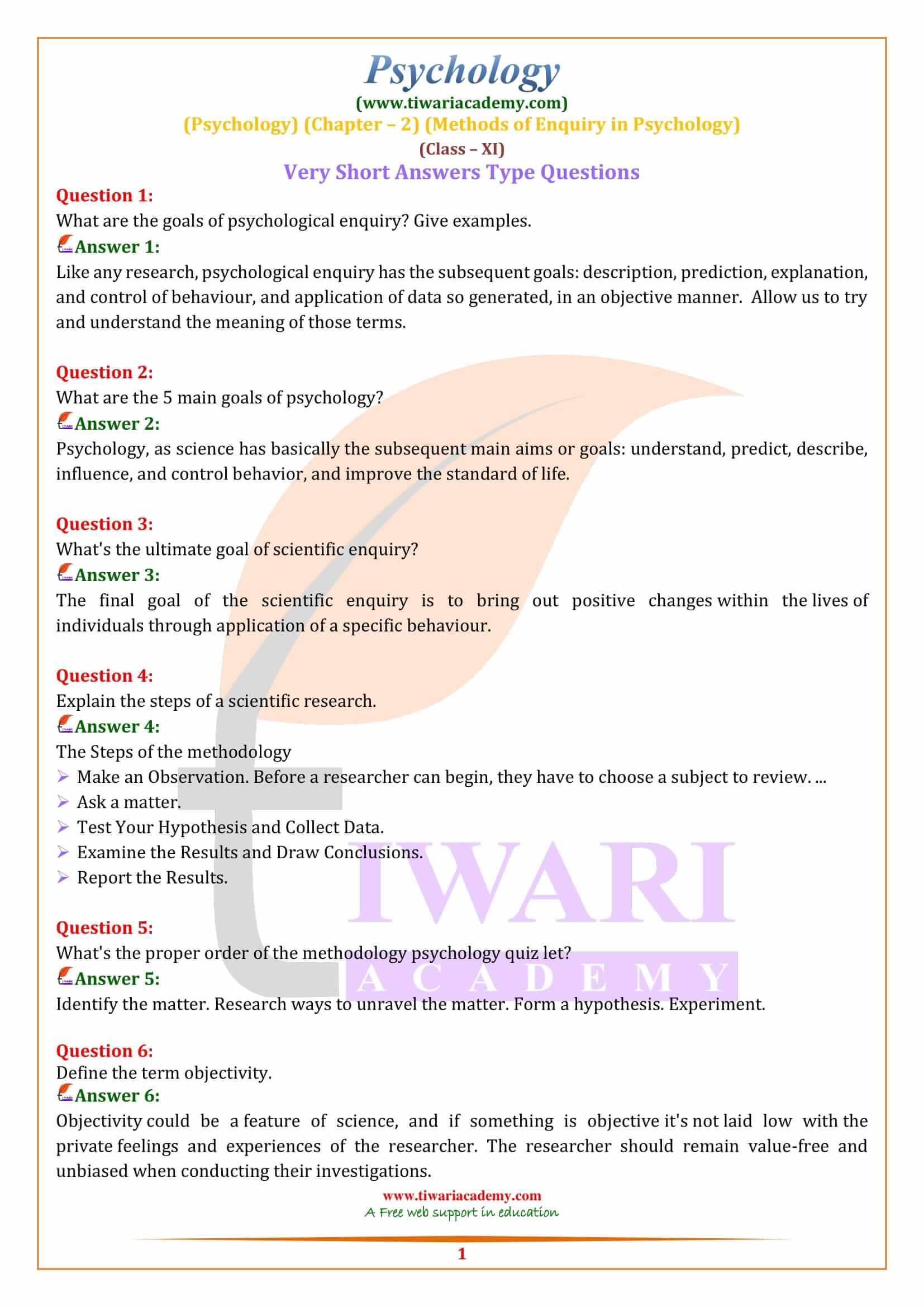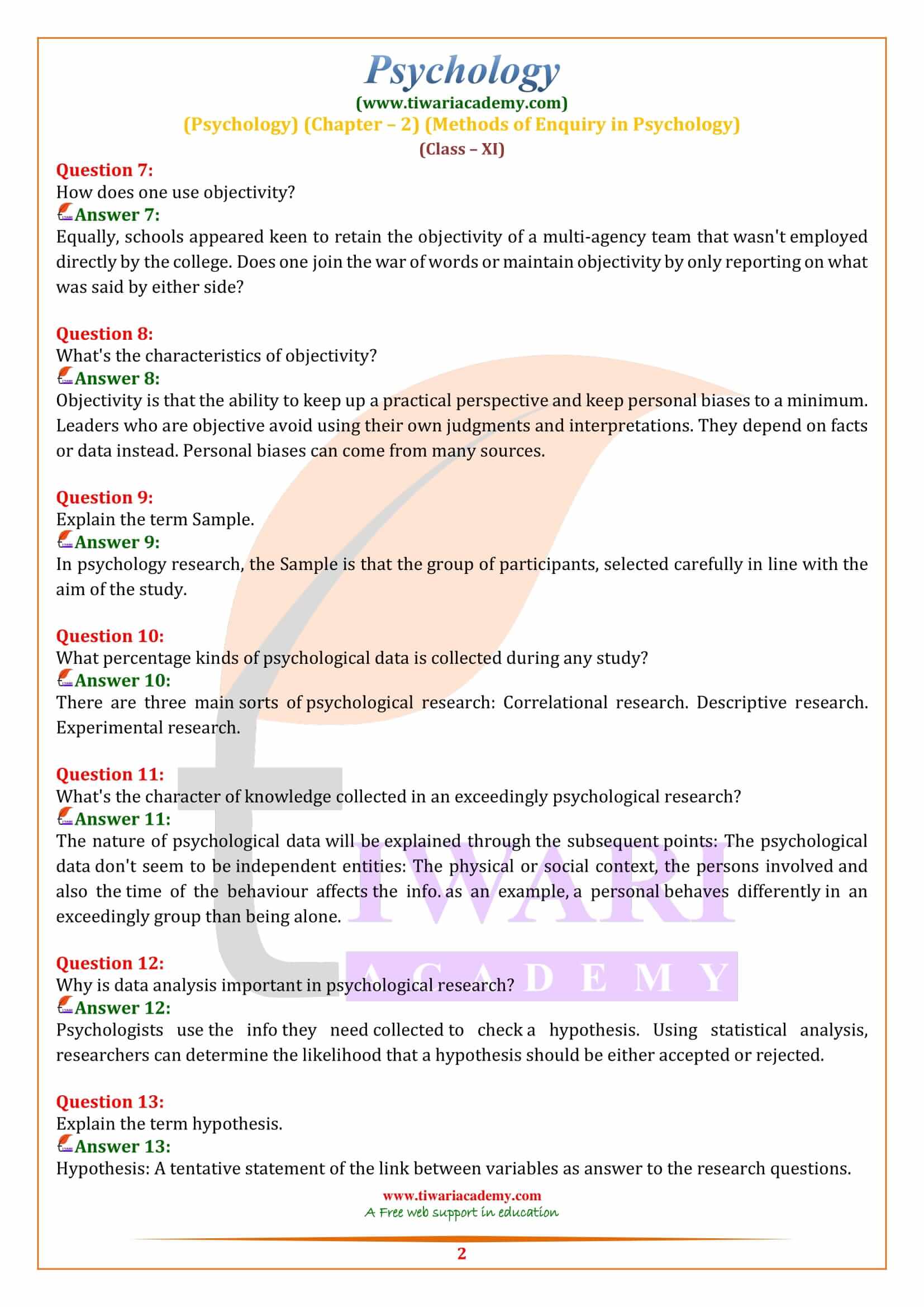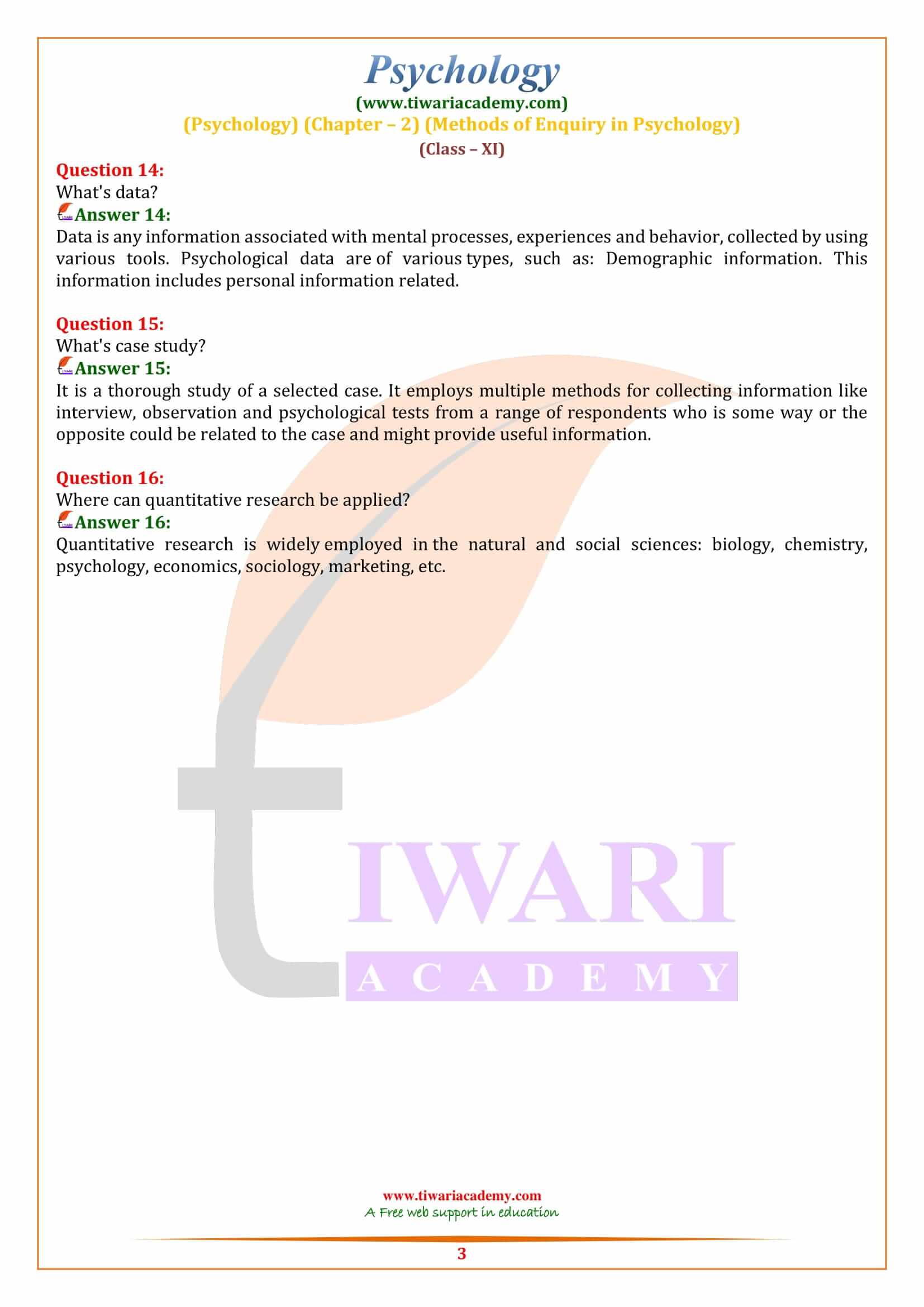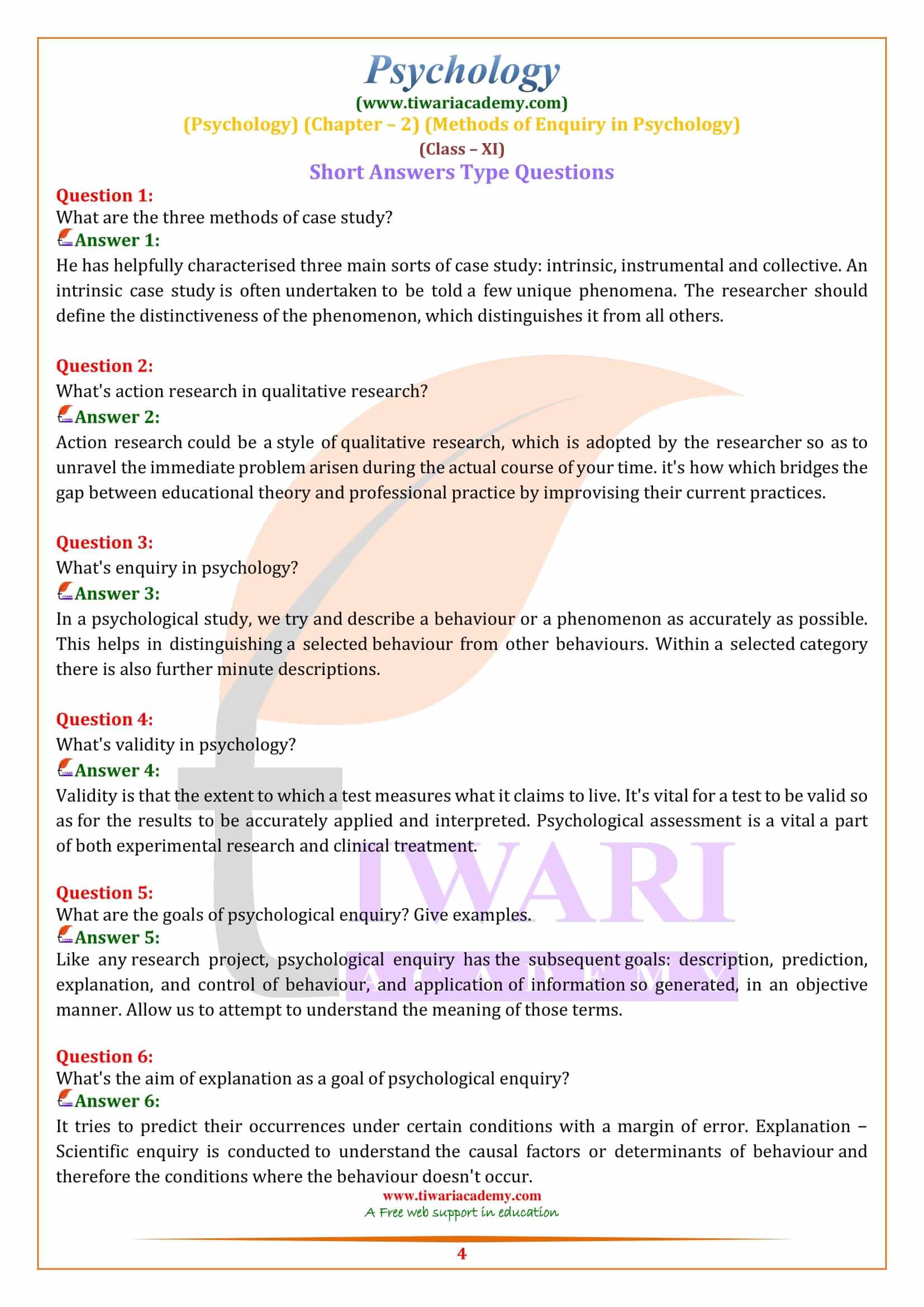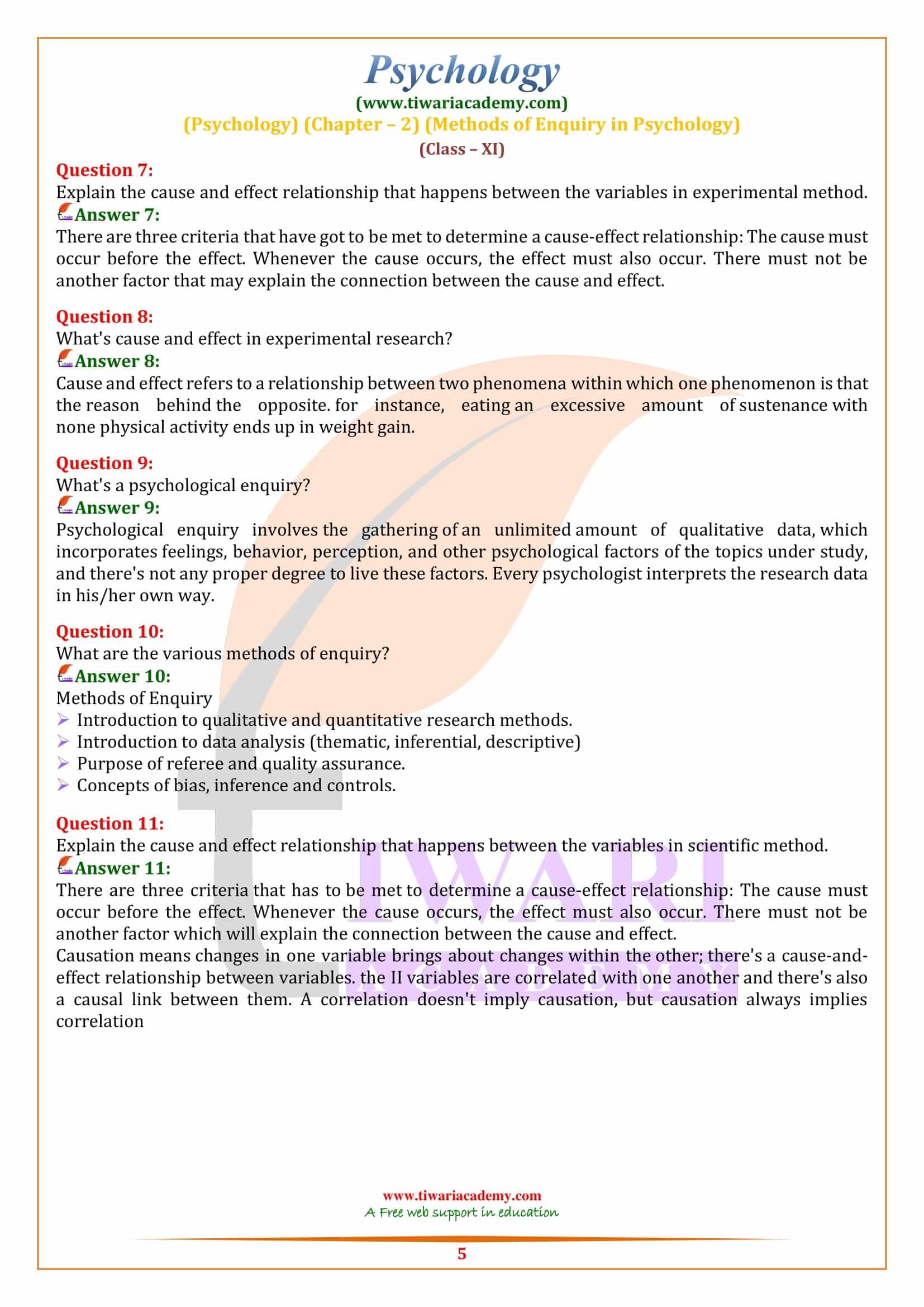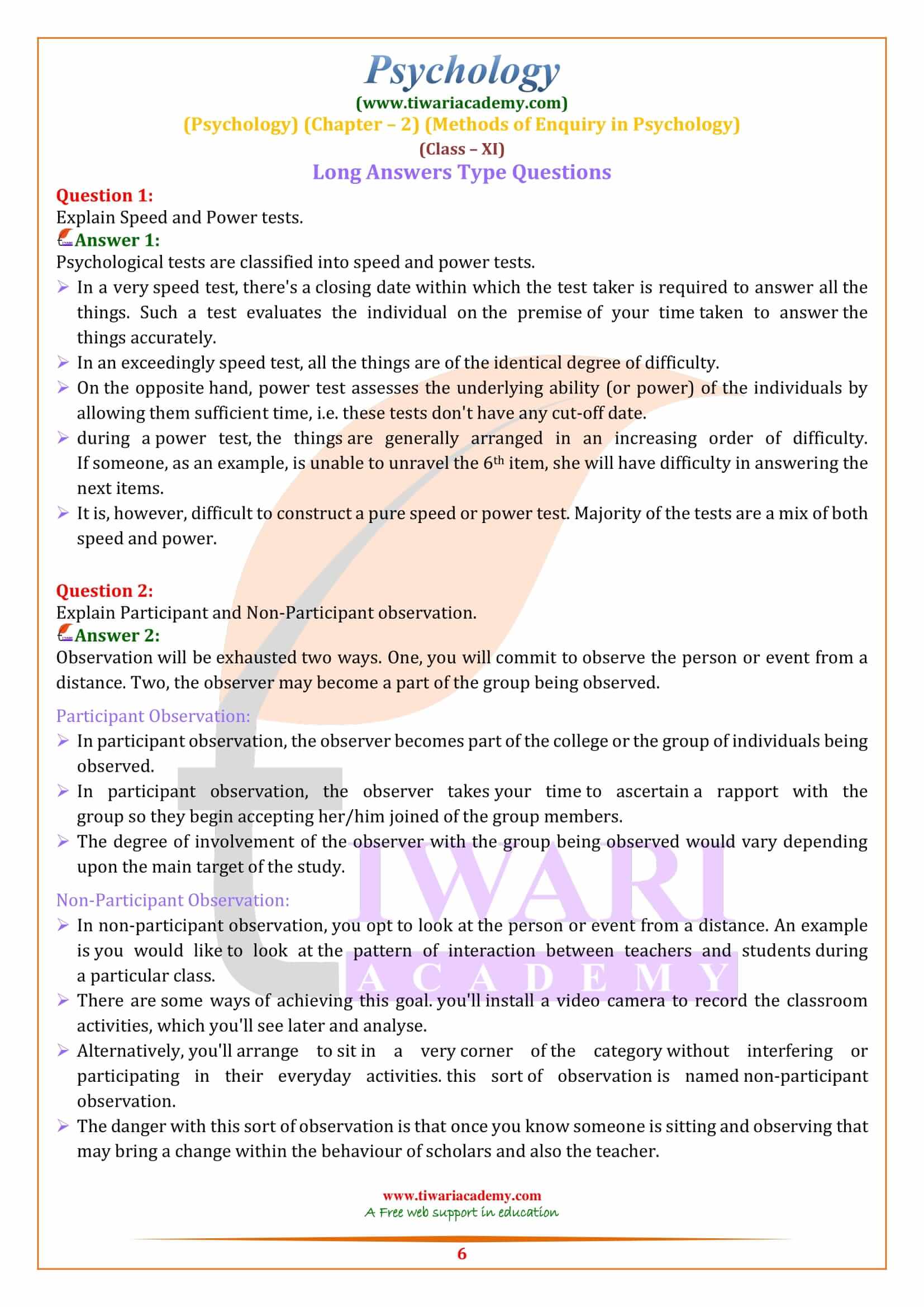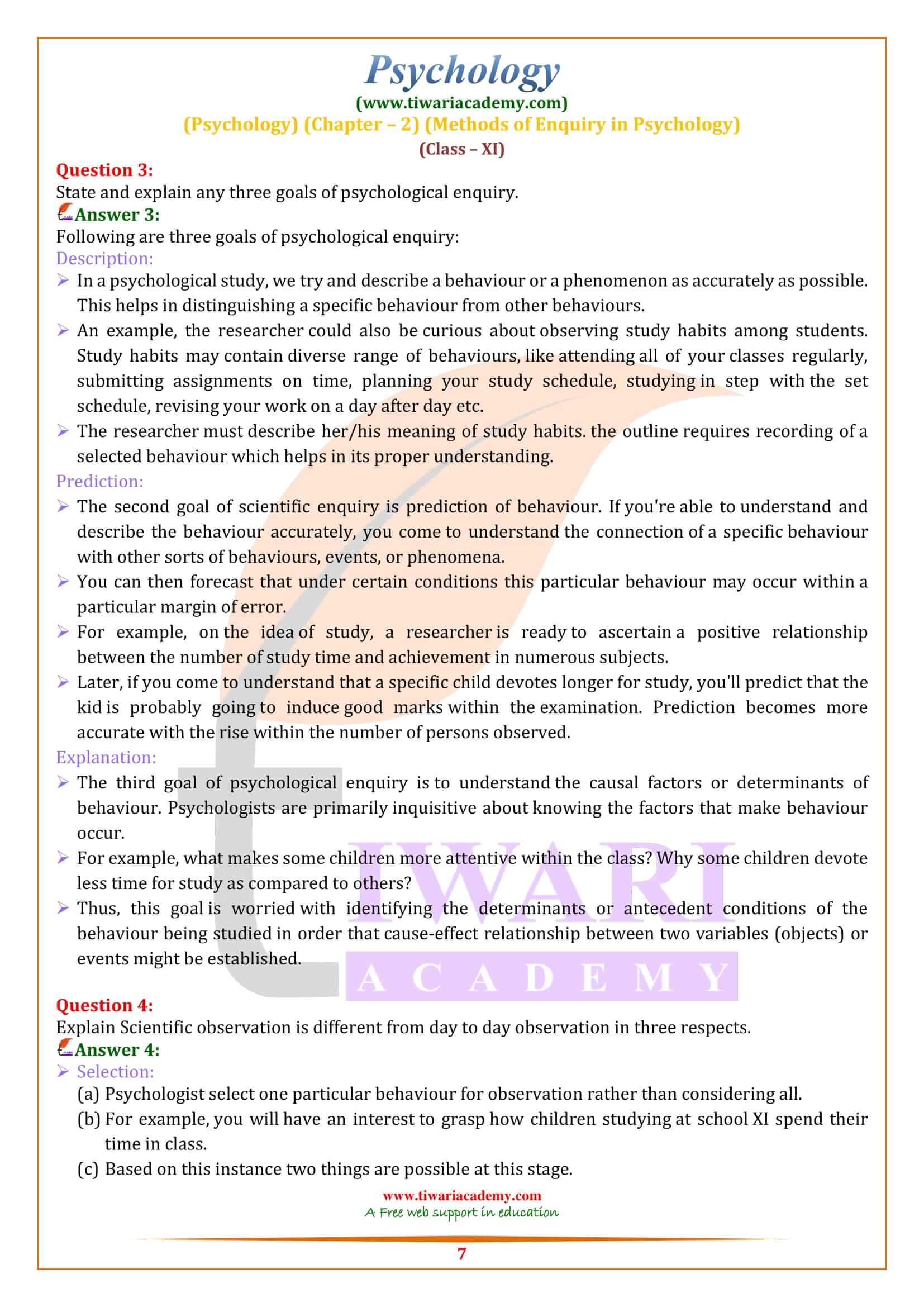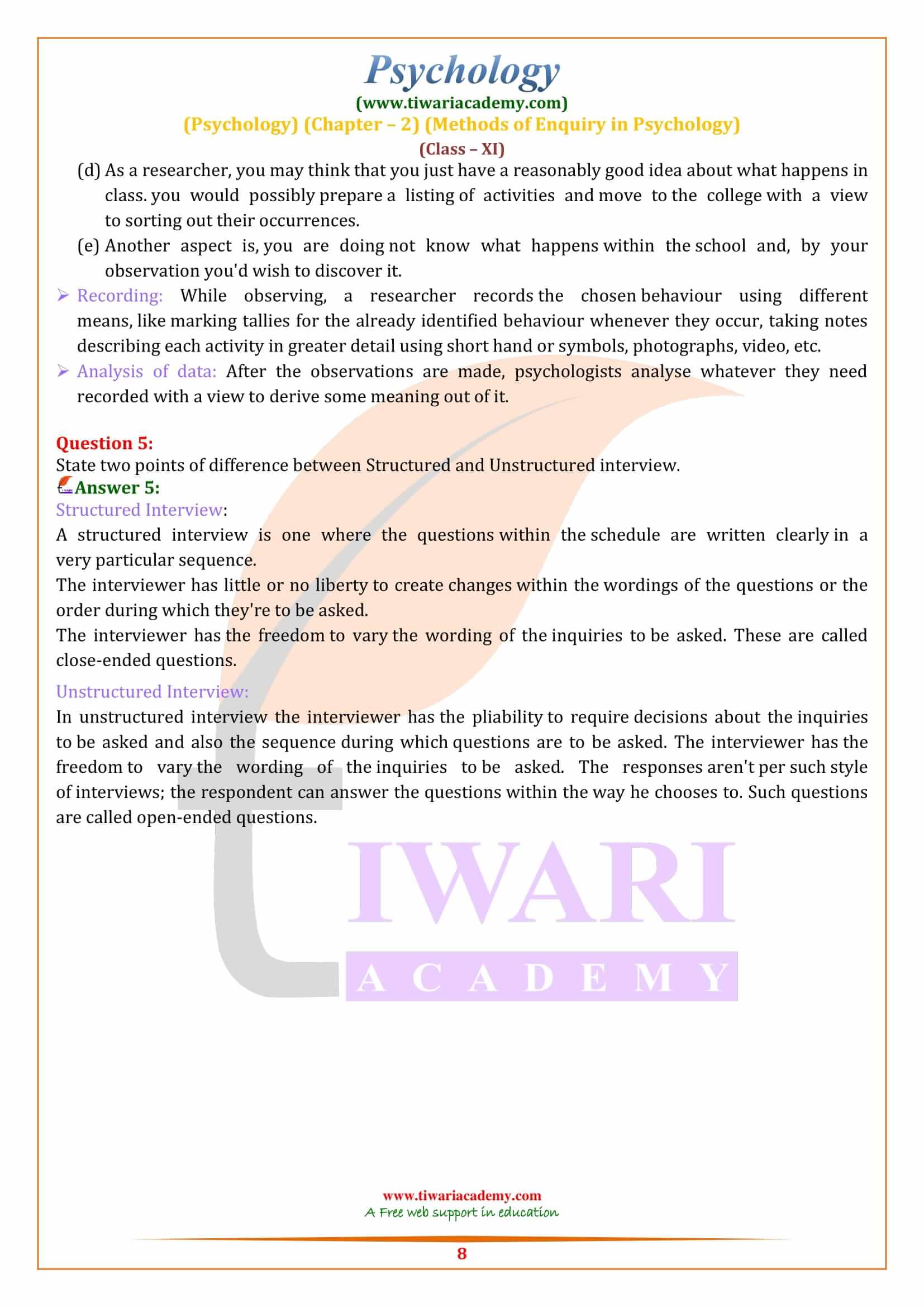Class 11 Psychology Chapter 2 Important Questions Methods of Enquiry in Psychology updated for session 2025-26 CBSE and other state board exams. Class 11 Psychology Chapter 2 Extra Question Answers includes important question answers with explanation confined to NCERT textbook solutions.
Explain Speed and Power tests.
Psychological tests are classified into speed and power tests.
- In a very speed test, there’s a closing date within which the test taker is required to answer all the things. Such a test evaluates the individual on the premise of your time taken to answer the things accurately.
- In an exceedingly speed test, all the things are of the identical degree of difficulty.
- On the opposite hand, power test assesses the underlying ability (or power) of the individuals by allowing them sufficient time, i.e. these tests don’t have any cut-off date.
- During a power test, the things are generally arranged in an increasing order of difficulty. If someone, as an example, is unable to unravel the 6th item, she will have difficulty in answering the next items.
- It is, however, difficult to construct a pure speed or power test. Majority of the tests are a mix of both speed and power.
Explain Participant and Non-Participant observation.
Observation will be exhausted two ways. One, you will commit to observe the person or event from a distance. Two, the observer may become a part of the group being observed.
Participant Observation:
- In participant observation, the observer becomes part of the college or the group of individuals being observed.
- In participant observation, the observer takes your time to ascertain a rapport with the group so they begin accepting her/him joined of the group members.
- The degree of involvement of the observer with the group being observed would vary depending upon the main target of the study.
Non-Participant Observation:
- In non-participant observation, you opt to look at the person or event from a distance. An example is you would like to look at the pattern of interaction between teachers and students during a particular class.
- There are some ways of achieving this goal. you’ll install a video camera to record the classroom activities, which you’ll see later and analyse.
- Alternatively, you’ll arrange to sit in a very corner of the category without interfering or participating in their everyday activities. this sort of observation is named non-participant observation.
- The danger with this sort of observation is that once you know someone is sitting and observing that may bring a change within the behaviour of scholars and also the teacher.
State and explain any three goals of psychological enquiry.
Following are three goals of psychological enquiry:
Description:
In a psychological study, we try and describe a behaviour or a phenomenon as accurately as possible. This helps in distinguishing a specific behaviour from other behaviours.
An example, the researcher could also be curious about observing study habits among students. Study habits may contain diverse range of behaviours, like attending all of your classes regularly, submitting assignments on time, planning your study schedule, studying in step with the set schedule, revising your work on a day after day etc.
The researcher must describe her/his meaning of study habits. the outline requires recording of a selected behaviour which helps in its proper understanding.
Prediction:
The second goal of scientific enquiry is prediction of behaviour. If you’re able to understand and describe the behaviour accurately, you come to understand the connection of a specific behaviour with other sorts of behaviours, events, or phenomena.
You can then forecast that under certain conditions this particular behaviour may occur within a particular margin of error.
For example, on the idea of study, a researcher is ready to ascertain a positive relationship between the number of study time and achievement in numerous subjects.
Later, if you come to understand that a specific child devotes longer for study, you’ll predict that the kid is probably going to induce good marks within the examination. Prediction becomes more accurate with the rise within the number of persons observed.
Explanation:
- The third goal of psychological enquiry is to understand the causal factors or determinants of behaviour. Psychologists are primarily inquisitive about knowing the factors that make behaviour occur.
- For example, what makes some children more attentive within the class? Why some children devote less time for study as compared to others?
- Thus, this goal is worried with identifying the determinants or antecedent conditions of the behaviour being studied in order that cause-effect relationship between two variables (objects) or events might be established.
Explain Scientific observation is different from day to day observation in three respects.
Selection:
- (a) Psychologist select one particular behaviour for observation rather than considering all.
- (b) For example, you will have an interest to grasp how children studying at school XI spend their time in class.
- (c) Based on this instance two things are possible at this stage.
- (d) As a researcher, you may think that you just have a reasonably good idea about what happens in class. you would possibly prepare a listing of activities and move to the college with a view to sorting out their occurrences.
- (e) Another aspect is, you are doing not know what happens within the school and, by your observation you’d wish to discover it.
Recording: While observing, a researcher records the chosen behaviour using different means, like marking tallies for the already identified behaviour whenever they occur, taking notes describing each activity in greater detail using short hand or symbols, photographs, video, etc.
Analysis of data: After the observations are made, psychologists analyse whatever they need recorded with a view to derive some meaning out of it.
